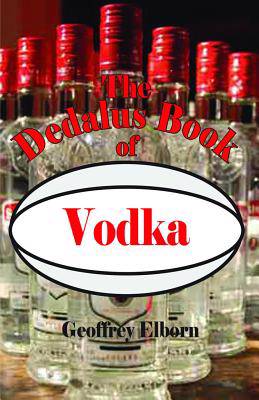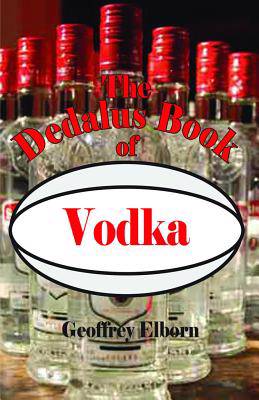
- Afhalen na 1 uur in een winkel met voorraad
- Gratis thuislevering in België vanaf € 30
- Ruim aanbod met 7 miljoen producten
- Afhalen na 1 uur in een winkel met voorraad
- Gratis thuislevering in België vanaf € 30
- Ruim aanbod met 7 miljoen producten
Zoeken
€ 31,95
+ 63 punten
Omschrijving
No other drink can claim to have influenced the course of human affairs more than vodka. "The green serpent" transformed the Russian state into a great power but it helped to destroy both tsarism and communism -- as well as the lives of millions of Russian peasants.
From Boris Yeltsin being dropped in a font and Shostakovich being cured of writer's block to "the great vodka debauch" of the Russo-Japanese War and the Churchill-Stalin drinking duel at Yalta, the spirit determined the lives of individual Russians and the fate of a nation.
Both sophisticated and brutal, vodka is the best-selling spirit in the world. Distilled from rye or the humble potato, it has been known since the fourteenth century, when it was first used as a medicine, but it took James Bond and the Cold War to make it glamorous in the West, particularly with younger drinkers.
'The first mention of vodka in English was made by a Scotsman, Captain Cochrane, who drank the liquid serpent while in Russia in 1820. He called it 'vodka(whisky)', a sketchy comparison, at best. Any respectable Caledonian will insist whisky-drinking is far too important an activity to involve the complementary consumption of food. Vodka-drinking, on the other hand, is too important to be undertaken without food. English drinkers have never got the hang of this crucial detail. The new Dedalus Book of Vodka by Geoffrey Elborn contains an extract from Angel Pavement(1930) by J.B.Priestley, ' the first appearance of vodka in English fiction', in which Mr Golspie, a shady businessman, induces miss Matfield, a proper typist, to down a glass or two. Miss Matfield thrills to the 'incendiary bomb' which 'had burst in her throat and sent white fire racing down every channel of her body'. It is delightful, but it lacks an essential ingredient: the pickle.'
Absent Friend in The Times Literary Supplement
'Chekhov was more ambivalent. As Geoffrey Elborn shows in his new cultural history, The Dedalus Book of Vodka, he was torn between his knowledge as a doctor and his understanding of human nature. Two of his brothers were alcoholic, and he denounced vodka companies as "Satan's blood peddlers". But he sympathised with the Russian peasantry, for whom vodka was nectar. And in his stories and plays, those who drink excessively are portrayed with humour and compassion.
Blake Morrison in The Guardian
From Boris Yeltsin being dropped in a font and Shostakovich being cured of writer's block to "the great vodka debauch" of the Russo-Japanese War and the Churchill-Stalin drinking duel at Yalta, the spirit determined the lives of individual Russians and the fate of a nation.
Both sophisticated and brutal, vodka is the best-selling spirit in the world. Distilled from rye or the humble potato, it has been known since the fourteenth century, when it was first used as a medicine, but it took James Bond and the Cold War to make it glamorous in the West, particularly with younger drinkers.
'The first mention of vodka in English was made by a Scotsman, Captain Cochrane, who drank the liquid serpent while in Russia in 1820. He called it 'vodka(whisky)', a sketchy comparison, at best. Any respectable Caledonian will insist whisky-drinking is far too important an activity to involve the complementary consumption of food. Vodka-drinking, on the other hand, is too important to be undertaken without food. English drinkers have never got the hang of this crucial detail. The new Dedalus Book of Vodka by Geoffrey Elborn contains an extract from Angel Pavement(1930) by J.B.Priestley, ' the first appearance of vodka in English fiction', in which Mr Golspie, a shady businessman, induces miss Matfield, a proper typist, to down a glass or two. Miss Matfield thrills to the 'incendiary bomb' which 'had burst in her throat and sent white fire racing down every channel of her body'. It is delightful, but it lacks an essential ingredient: the pickle.'
Absent Friend in The Times Literary Supplement
'Chekhov was more ambivalent. As Geoffrey Elborn shows in his new cultural history, The Dedalus Book of Vodka, he was torn between his knowledge as a doctor and his understanding of human nature. Two of his brothers were alcoholic, and he denounced vodka companies as "Satan's blood peddlers". But he sympathised with the Russian peasantry, for whom vodka was nectar. And in his stories and plays, those who drink excessively are portrayed with humour and compassion.
Blake Morrison in The Guardian
Specificaties
Betrokkenen
- Auteur(s):
- Uitgeverij:
Inhoud
- Aantal bladzijden:
- 240
- Taal:
- Engels
- Reeks:
Eigenschappen
- Productcode (EAN):
- 9781907650048
- Verschijningsdatum:
- 31/05/2015
- Uitvoering:
- Hardcover
- Formaat:
- Genaaid
- Afmetingen:
- 132 mm x 203 mm
- Gewicht:
- 340 g

Alleen bij Standaard Boekhandel
+ 63 punten op je klantenkaart van Standaard Boekhandel
Beoordelingen
We publiceren alleen reviews die voldoen aan de voorwaarden voor reviews. Bekijk onze voorwaarden voor reviews.








